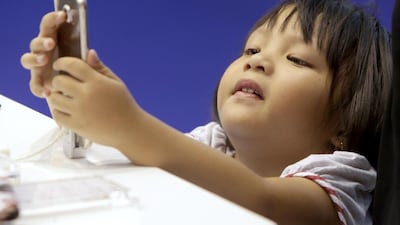The instinct to protect one’s child is among the strongest a human being can have. Sometimes, the danger is clear – such as a fire or a speeding car. Other threats are more insidious, particularly online ones, not only because they are woven into our daily lives but because they also come with so many undeniable benefits.
It is a little more than 30 years since the internet was released into the public domain. Since then, a generation of digital natives has emerged not knowing life without the web. The effect on education, socialisation and mental well-being to name but a few has been so transformational that a new social science, digital anthropology, has emerged to try and make sense of it all.
However, such worthy attempts to understand how the internet is affecting us are still in their infancy. There is much we still don’t know about the effects – good and bad – that technology and the web are having on society, especially children. What we do know is that the web’s ubiquity has made it much easier for young people to be exposed to all kinds of toxic influences, from online pornography and graphic violence to cyberbullying and blackmail.

This week, the UAE authorities announced measures targeted at removing at least some of this toxicity from the web. Sheikh Mohammed bin Rashid, Prime Minister and Ruler of Dubai, said the country’s Digital Quality of Life Council worked with social media companies to shut down 160,000 websites and social media accounts for selling drugs and promoting other “unfavourable habits”.
It is right that governments take strong action to remove harmful sites and social media accounts. It often requires the pressure of legislation to encourage tech companies into more meaningful action to reduce the harm that can be caused by malicious content on their platforms. But the struggle to protect young people begins in homes and classrooms, and it is a major one.
Many child-focused organisations, such as Unicef, advise parents to have frank and informed conversations with their young ones about the potential dangers the lurk on the net. This requires adults to have a grasp of the technology that is at least on a par with their children’s knowledge – and young people today are probably the most tech-savvy in history.
Developing technology is part of the cause – untethering the internet from desktop PCs in favour of smartphones, which are in essence powerful pocket computers, has allowed malicious and exploitative figures direct access to young people in an unprecedented way. Many devices’ safety features can be circumvented by bright and experienced digital natives, and parental control software often offers a false sense of security. In fact, the sophistication of phishing and other forms of online scams is often more than enough to trick educated adults, a fact that emphasises the threat faced by children and even older teenagers who may think they are wise to it all.
Technology offers young people unparalleled benefits, such as wide access to human knowledge, the opportunity to learn remotely, and the means to channel their youthful creativity. It also gives parents a way to keep in touch with and supervise their children. But with such positives come some serious negatives – often it is not a case of if children are exposed to toxic material or threats, it is a case of when. Governments can only do so much; it is up to parents, teachers and other trusted adults to not only protect children but to have the digital literacy to understand the nature of the threats themselves.


